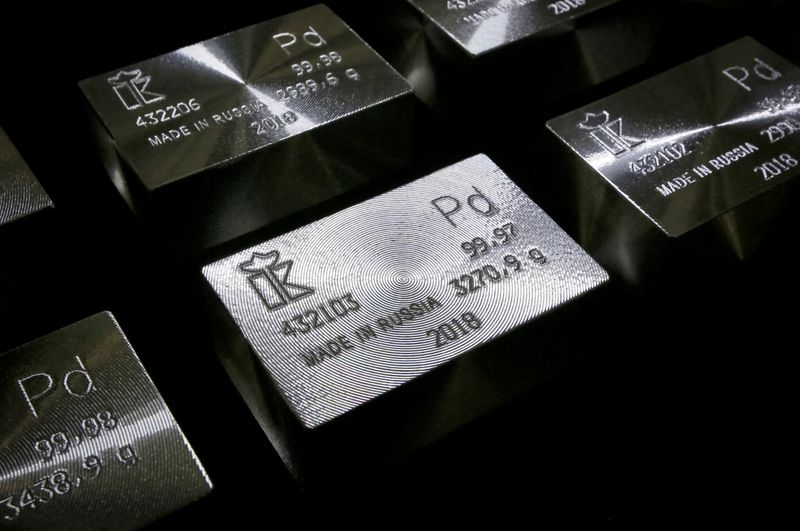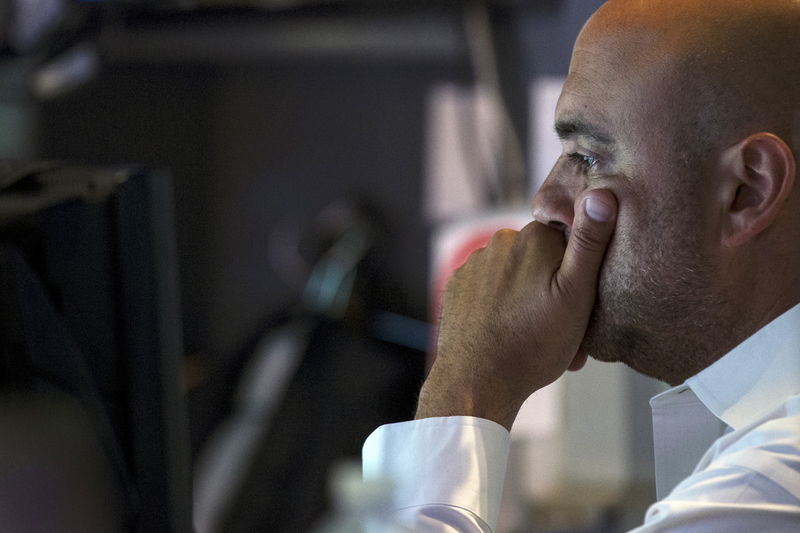By Nick Carey and Christina Amann
LONDON (Reuters) -Saving up for a new ride? Better start putting more cash aside.
Russia's invasion of Ukraine is ramping up the price of metals used in cars, from aluminium in the bodywork to palladium in catalytic converters to the high-grade nickel in electric vehicle batteries, and drivers are likely to foot the bill.
While metals have not been the target of Western sanctions yet, some shippers and autoparts suppliers are already steering clear of Russian goods, putting more pressure on carmakers already reeling from a chip shortage and higher energy prices.
"So what happens from here?" asked Carlos Tavares, chief executive of Stellantis, the world's fourth-biggest automaker, when speaking to reporters last week.
"First, what happens is that we have an escalation of cost that comes from raw materials and energy that is going to put more pressure on the business model," he said.
Aluminium and palladium both hit record highs on Monday while nickel, which is also used to make stainless steel, crossed the $100,000-a-tonne level for the first time ever on Tuesday.
Andreas Weller, chief executive of Aludyne, which makes aluminium and magnesium die-cast parts for automakers, said his European business has seen a 60% rise in the cost of aluminium over the past four months, as well as soaring energy bills.
With annual sales of $1.2 billion and a surge of costs in the "hundreds of millions of dollars", Weller, whose company is based in Southfield, Michigan, said he has been forced to ask customers to pay more than the prices already agreed.
"Some are more understanding and cooperative than others, but we cannot survive without that," Weller, who has four foundries and one machining plant in Europe, told Reuters.
Stellantis chief executive Tavares said an end to the chip shortage could help carmakers offset higher metal and energy prices, but he did not expect any resolution to the semiconductor issues this year.
'WE QUIT'
Consumers are already paying for the chip shortage as it has pushed car inventories down and prices up - even before higher metals prices feed through to the forecourt.
According to consultancies LMC and J.D. Power, the average transaction price for a new vehicle in the United States was $44,460 in February, up 18.5% from the same month in 2021.
German carmakers such as Volkswagen (DE:VOWG_p) and BMW have already been hit by Russia's invasion of Ukraine as it has forced makers of wire harnesses in the west of the country to halt production. A wire harness is a vital set of parts which neatly bundle up to 5 km (3.1 miles) of cables in the average car - and Ukraine is a key supplier.
And when it comes to metals, Russia companies are major suppliers to Germany. In 2020, they accounted for 44% of Germany's nickel imports, 41% of its titanium, a third of its iron, and 18% of its palladium.
With production of 108 million tonnes last year, Russia is the world's fifth-largest producer of iron ore, according to Credit Suisse (SIX:CSGN), supplying European steelmakers who now face higher prices and possible difficulties procuring the metal. Austria's Voestalpine and Sweden's SSAB are both exposed to this risk, according to U.S. investment bank JPMorgan (NYSE:JPM).
Voestalpine said it had enough inventory for the coming months, but expected it would have to source raw materials from other suppliers thereafter. SSAB did not respond to a request for comment about supplies from Russia.
Faced with the choice of buying Russian goods and indirectly funding Russia's invasion, which Moscow calls a special military operation, Germany steel and aluminium supplier Voss Edelstahlhandel has decided to draw the line.
"Even though aluminium is not on the sanctions list, it is used by Russia to get money into the country and therefore we quit," Chief Executive Thorsten Studemund told Reuters.
Russia is a big manufacturer of aluminium, the most energy-intensive metal to produce, accounting for 6% of global output.
'BATTERY MINERAL WOES'
Studemund's company has also been contending with high prices for nickel.
Caspar Rawles, chief data officer at specialist consultancy Benchmark Mineral Intelligence (BMI), said that while Russia accounts for 5% of global nickel production, it supplies about 20% of the world's high-grade nickel.
The metal is used to make batteries for electric vehicles (EVs), posing a fresh challenge for carmakers already investing billions to move away for combustion engines just as demand for zero-emission models is starting to take off.
Some of Russia's high-grade nickel will probably end up in China, which is unlikely to impose sanctions on Russia, but this all comes at a time when carmakers are facing rising bills for other EV battery minerals as demand outstrips supply.
"That's the main concern for the battery supply chain in that you've got record high lithium prices, and very, very high cobalt and nickel prices," Rawles said. "This is just adding to battery mineral woes."
Batteries are one the most expensive components in EVs and automakers have been hoping they will become cheaper so they can offer more affordable electric cars.
BMW said it was focusing as much as possible on recycling battery nickel, with up to 50% scrap nickel used in the high-voltage battery of its new BMW iX model.
When it comes to palladium, carmakers are also in a bind.
The auto industry uses it in catalytic converters for gasoline models - or platinum for diesel models - both of which still make up the vast majority of car sales.
Palladium prices have been rising for about six years and Russia accounts for about 40% of the global market.
"There is no other option beyond palladium and platinum for catalytic converters, and you can't build a car without a catalytic converter," said Chris Blasi, chief executive of precious metals dealer Neptune Global.
He said he bought a lot of palladium in December at $1,940 an ounce. On Monday, it hit a record $3,440.

Blasi estimated that the value of the palladium used in the average car is about $200, but that could easily double.
"Either consumers will pay more for cars, or if automakers can't pass it on they'll have to find cost savings somewhere else," he said.
